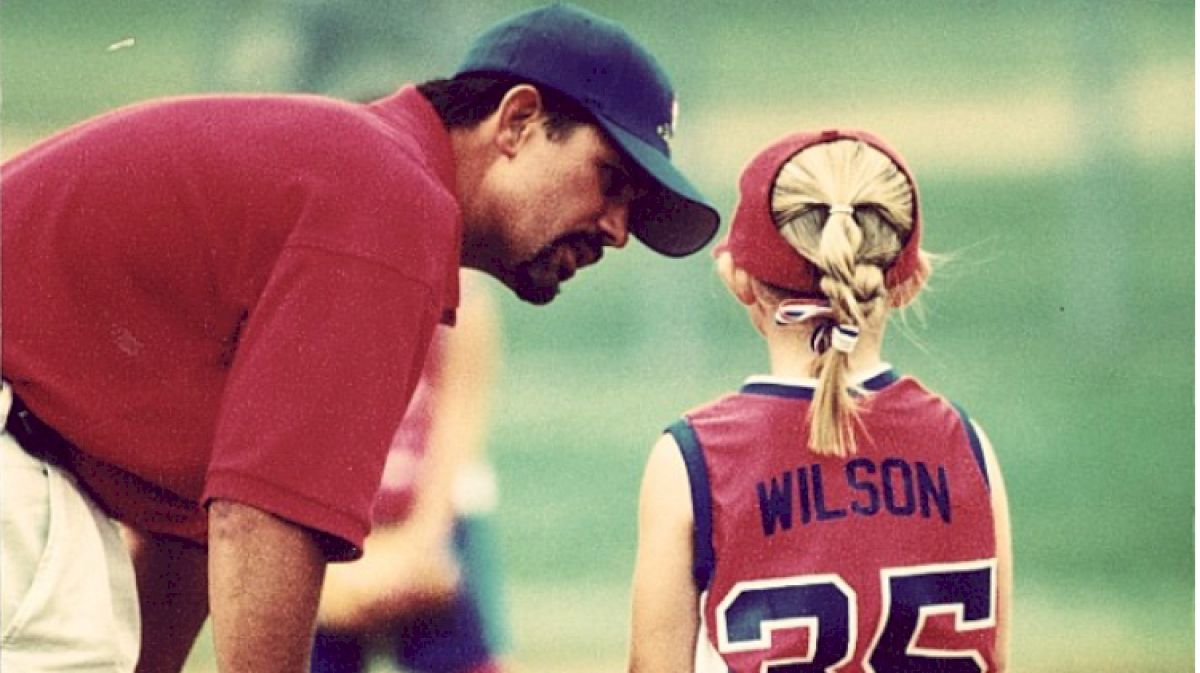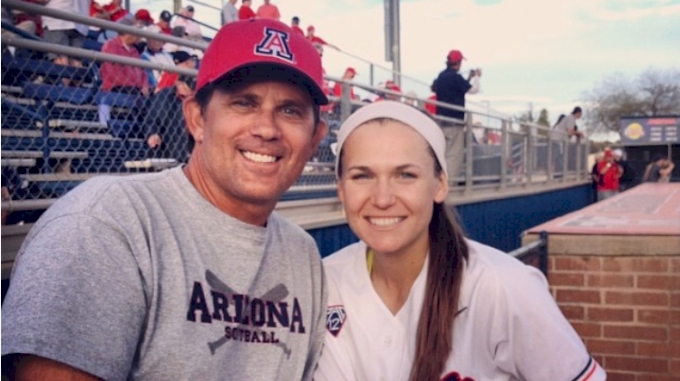The Diary Of The Coach's Daughter By Hallie Wilson
The Diary Of The Coach's Daughter By Hallie Wilson
Hallie Wilson recounts her experience growing up the daughter of the coach. Through the hard times, they emerged with a stronger bond.

By Hallie Wilson @halwil5
My dad coached me at every level prior to my college career. He used to swear to me that “it was his last year” coaching and that he would just be a normal dad in the stands, but somehow he always wiggled his way back onto the field.
His career as a softball coach began like that of most dads I assume, by coaching his oldest daughter. My sister probably took the brunt of the growing pains that go along with learning how to separate frustration with educational moments. Jim Wilson is a passionate and competitive man: He hates to lose more than he likes to win, and if you met him today you might not know, but for a time he struggled to control his emotions.
As I evolved into the athlete I am today, he likewise developed as a coach. It was not without trial and error that we developed a routine that made it manageable to coexist as father and daughter in a situation in which some may find they butt heads.
Grappling With Identities
When I was in eighth grade, I transitioned from my first travel ball team to a new club. After I joined this new squad, my dad had every intention of staying in the stands until the current coach asked him to join the staff. This was the first time that I realized my dad wasn’t just mine. In the few years that our family had been a part of the travel ball circuit, he had developed an identity of his own as a coveted coach.
My 13-year-old reaction was one of annoyance; it was a new team and I wanted the experience for myself. I wanted to establish my own identity away from being a “coach’s kid.” I remember talking about whether or not he would help coach the team around the dinner table, where the Wilsons debated all of life’s dilemmas. Begrudgingly enough to me, he ended up on the coaching staff.
Throughout the season we established our own identities, which ultimately was fundamental in the development of our father-daughter and coach-player relationships. He asserted himself as a calming presence—the balanced coach who could maintain his composure and be a steady force in a player’s mentality and life. He developed his identity away from being “Hallie’s dad,” which gave us each the freedom to be successful and maintain a constructive and flourishing relationship.
Creating A Routine
Softball keeps kids busy. Add on another competitive sport, practices, lessons, and schoolwork and suddenly a 14-year-old is “working” a 120-hour week.
I vividly remember driving to softball every week with my dad and being quiet in the car or putting headphones on. I didn’t realize the way this could be perceived. It is clearly rude to ignore the only other person in the car and to selfishly immerse myself in my own world when he was driving me where I needed to go.
As my parent, he allowed me the time to myself and would encourage me to mentally “turn off” the outside world, but as my coach, he expected full engagement on the field once we stepped out of the car.
We created a routine that allowed both of us the time to detach from the madness of life and softball in order to be at our best when we needed to be.
The Messiness Of Recruiting
In travel ball, especially today, it is natural to feel the pressure of college recruiting, and that pressure is tenfold when the coach of a college recruit is also the parent. During my recruiting experience, I remember feeling somewhere stuck in between flattered and overwhelmed. As the burden to verbally commit twisted its way into daily conversations with my parents I remember craving a conversation that wasn’t all about my future.
I have no idea how he managed to successfully coach and parent a rebellious teenage me through the recruiting process, but I do know that he made a conscious effort to understand all of the NCAA rules and regulations that go along with being a parent and a coach. It was key for us to be on the same page and to communicate about what was important to me when it came to this decision. His understanding of the rules and my open communication lifted the extra stress off of us and allowed the only focus to be on playing softball.
Ultimately, every coach-player and parent-daughter relationship is unique and it is important to find ways that work for you. Through developing our own softball identities, creating a routine, and communicating efficiently, we were able to create a lasting and healthy relationship.

Discovering what worked for us took time, energy, and multiple vent sessions with my mom, but I wouldn’t trade our journey for anything.
Sports are and always will be a large part of our relationship, and even the stories of him losing his cool in the car after a bad game or me talking back and being a brat are some of our favorite stories to reminisce on today. It all comes full circle and is a part of the process.